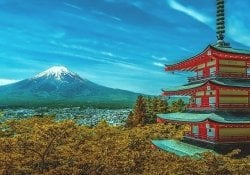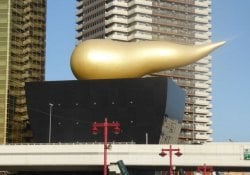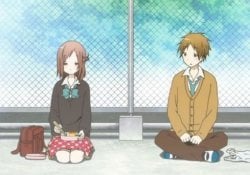Many end up confused and lost with the amount of meanings of a word when browsing Japanese dictionaries like desu or our Portuguese dictionary at japones.skdesu.com? Perhaps one wonders, why do Japanese words have so many meanings? In this article we will answer that question!
Sometimes a Japanese word has so many meanings that we are even confused to know which one is correct. Sometimes the same word has meanings that have nothing to do with each other, sometimes even opposite meanings.
There are many reasons to understand why Japanese words have many meanings. The 4 main reasons can be summarized in the article summary below:
Índice de Conteúdo
Japanese grammar generates many meanings
The main reason the Japanese language has several meanings for a single expression is due to Japanese grammar. It uses many particles and complements that totally change the meaning of the word.
Usually when looking up a word in the dictionary, it will not present it with different particles and complements. For this reason, a word in the dictionary can have opposite and different meanings.
Context is also capable of changing the meaning and intent with which the word is spoken. For this reason it is not good to cling to the meanings of a Japanese dictionary. Sometimes the dictionary even presents a negative version of the word.
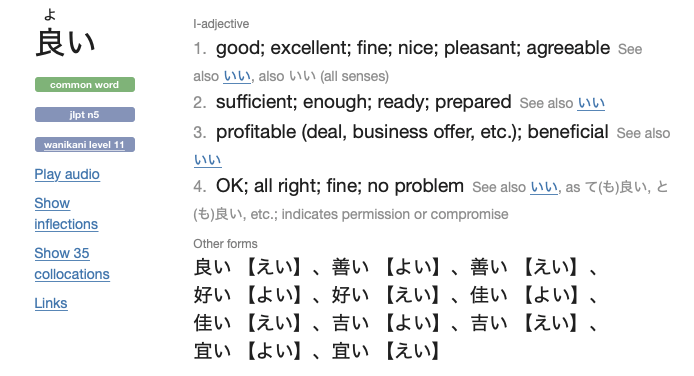
The same word followed by combinations such as desu [です] can have a different meaning in the sentence. So most of the time you find many meanings of a single word in the dictionary, it's all tied to Japanese grammar.
Another thing that adds a lot of meaning in the Japanese language is its word transformation. A single word that is a noun can be turned into a verb, adjective and vice versa.
The meaning that a word conveys varies according to the word that is combined with the context and general to which it belongs. This is one of the peculiarities of the Japanese language, which we can find in any language.
Ideograms and origin created many meanings
The Japanese language has its alphabet based on ideograms that express ideas. A word can be composed of several ideograms that present different ideas. A single ideogram can also have multiple meanings.
Not to mention that the characters are of Chinese origin. Many Japanese words end up inheriting, in addition to the Japanese meaning, the Chinese meaning of ideograms and words.
A single ideogram can have an isolated meaning or several meanings that are actually only certain compounds in a word. The dictionary hardly explains this and presents several meanings in a single ideogram.
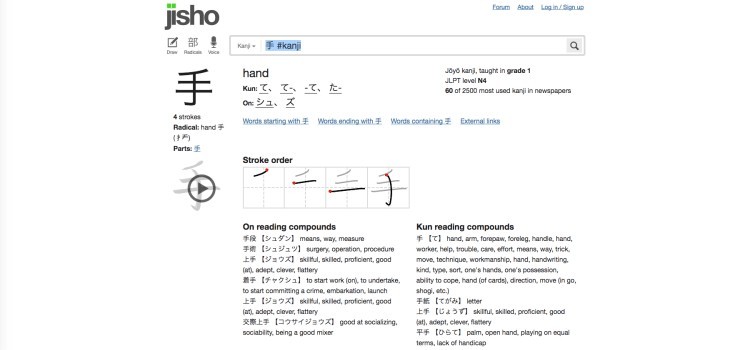
There are usually Japanese words composed of only one ideogram, sometimes with more than one pronunciation and with different meanings. The word itself with the meaning of ideograms are different things.
Not to mention the countless other Japanese words of foreign origin. This causes, in addition to words with many meanings, several words with the same meaning and use.
As an example let's take the word maru [丸] which is just an ideogram. See below the list of meanings that this simple Japanese word can have:
- Circle;
- Totality, whole, full, complete;
- Money, dough, spring;
- Office inside the walls of a castle;
- Suffix for names of ships, people, instruments, dogs, etc.;
If you just search for the ideogram, it will give you the meaning of round, circular, circle, round, full, perfection, pills, round, roll up, curl, seduce and explain;
See how confused it is? Don't worry too much about it may seem complex, but in reality it's nothing to worry about. Most of the time the particles, complements and words of the context will help you to understand what really maru [丸] means.
History and evolution have greatly changed the meanings
Throughout Japan's millenary history, words have changed their meaning and usage. This happens in many languages, where we have words that we no longer use, or they simply change the meaning.
Japan has a troubled history with many abrupt changes in both population and language. No wonder Japan is divided into 47 states and each with their different dialect and accent.
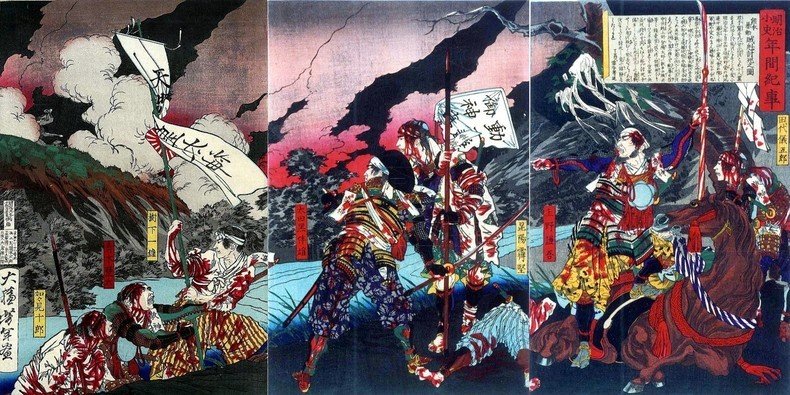
Japan spent a lot of time in civil wars where the population lived isolated, separated and disunited. This made each party use the Japanese language in a different way. Another reason Japanese words have multiple meanings.
Nowadays there are many words that have lost their original use, but dictionaries still keep the present meaning. This is not unique to Japanese, just browse any dictionary and you will be lost.
The article is still halfway through, but we recommend also reading:
Language Change confuses your head
In fact, as I've mentioned several times, you can take an English dictionary and check the meaning of a certain word, it will also have many different meanings.
Sometimes the meanings presented don't make sense, but for the Japanese they do. You're making a language change, so it's understandable to get totally lost in the Japanese way of thinking.
Another thing you need to keep in mind is that dictionary definitions may not be correct and match live conversation or in different situations.
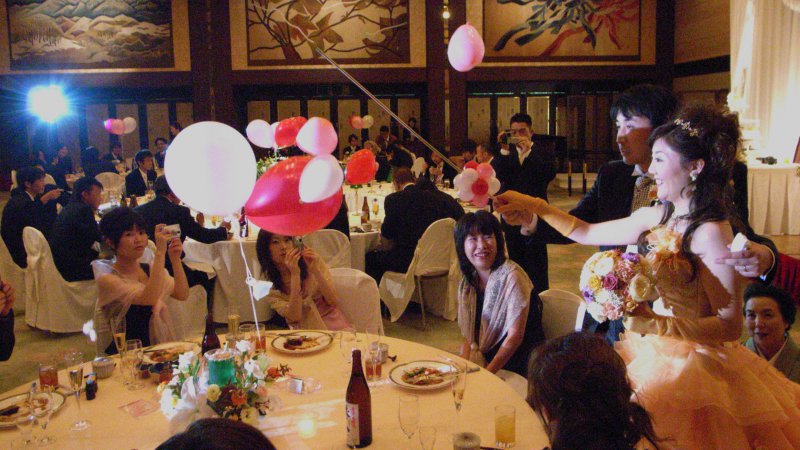
Without wanting to swear, Brazilians use the word fuck being that in the dictionary it refers to a part of the ship, but in informal language it refers to the male genital organ, and at the same time it refers to something surprising, an admiration or enthusiasm.
The Japanese language can have a lot of these incomprehensible things. For this reason, you need to adapt to the situation and real life and not be stuck with a dictionary.
How not to get lost in Japanese
First, avoid trying to memorize the meanings of a word or ideogram within a Japanese dictionary. Nobody picks up a Portuguese dictionary and starts memorizing the meaning of each word.
Most Brazilians speak Portuguese without having been in the dictionary looking up every word they wanted to learn. Try to learn things naturally without any worries.
To avoid problems when learning new words, try to focus only on the commonly used meaning of a Japanese word. But stay flexible to understand new meanings depending on the context of a sentence.

It's like you want to hit a target. In target shooting there are several points depending on where to hit. A Japanese word is like a target, where the most used meaning is worth 100 points, while the secondary is worth less points.
When you play target shooting you always try to hit the middle. So keep that in mind, if you don't hit the middle, you'll still get points, just don't try to hit the outside. Remember that the position and strength of the wind can also affect the path of your arrow.
The strength of the wind and its position is exactly the particles, context and complements of the Japanese language. You need to adapt to the situation to hit the target right in the middle.

